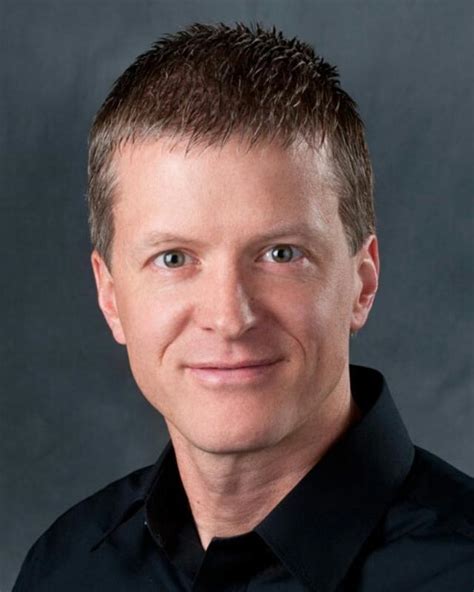A Quote by Daniel Cawdry
As the musician straineth his strings, and yet he breaketh none of them, but maketh thereby a sweeter melody and better concord; so God, through affliction makes His own better unto the fruition and enjoying of the life to come.
Related Quotes
Each individual composes the music of his own life. If he injures another, he brings disharmony. When his sphere is disturbed, he is disturbed himself, and there is a discord in the melody of his life. If he can quicken the feeling of another to joy or to gratitude, by that much he adds to his own life; he becomes himself by that much more alive. Whether conscious of it or not, his thought is affected for the better by the joy or gratitude of another, and his power and vitality increase thereby, and the music of his life grows more in harmony.
It is through the healing Atonement of Jesus Christ that we may have the strength to stand tall and strong and to have our souls be filled—with light, understanding, joy, and love. His invitation is extended to “all to come unto him and partake of his goodness; and he denieth none that come unto him.
The face of the Son of God, who, instead of accepting the sacrifice of one of his creatures to satisfy his justice or support his dignity, gave himself utterly unto them, and therein to the Father by doing his lovely will; who suffered unto the death, not that men might not suffer, but that their suffering might be like his, and lead them up to his perfection.
Had He not emerged from the tomb all our hopes, all our salvation would be lying dead with Him unto this day. But as we see Him issue from the grave we see ourselves issue with Him in newness of life. Now we know that His shoulders were strong enough to bear the burden that was laid upon them, and that He is able to save to the uttermost all that come unto God through Him. The resurrection of Christ is thus the indispensable evidence of His completed work, His accomplished redemption.
'Go to My brethren, and say unto them, I ascend unto My Father, and your Father, and to My God, and your God' (Jn. 20:!7). He is our Father by grace through the Spirit of adoption (Rom. 8:15), but His Father by nature on account of His divinity. Similarly, He is our God as the creator of our human nature, but His God by reason of the dispensation whereby He became man. He made these distinctions so that we might understand the difference.
The most dangerous man in the world is the contemplative who is guided by nobody. He trusts his own visions. He obeys the attractions of an interior voice but will not listen to other men. He identifies the will of God with anything that makes him feel, within his own heart, a big, warm, sweet interior glow. The sweeter and the warmer the feeling is, the more he is convinced of his own infallibility.
Christianity set itself the goal of fulfilling man’s unattainable desires, but for that very reason ignored his attainable desires. By promising man eternal life, it deprived him of temporal life, by teaching him to trust in God’s help it took away his trust in his own powers; by giving him faith in a better life in heaven, it destroyed his faith in a better life on earth and his striving to attain such a life. Christianity gave man what his imagination desires, but for that very reason failed to give him what he really and truly desires.
In our own storms in life the Savior is our solace and our sanctuary. If we seek peace, we must come unto Him, the Man who suffered for mankind, who committed His life to healing the sick and comforting the disconsolate, is mindful of your sufferings, doubts, and heartaches. Living the gospel does not mean the storms of life will pass us by, but we will be better prepared to face them with serenity and peace.
God is not concerned about our plans; He doesn’t ask, “Do you want to go through this loss of a loved one, this difficulty, or this defeat?” No, He allows these things for His own purpose. The things we are going through are either making us sweeter, better, and nobler men and women, or they are making us more critical and fault-finding, and more insistent on our own way. The things that happen either make us evil, or they make us more saintly, depending entirely on our relationship with God and its level of intimacy.

































